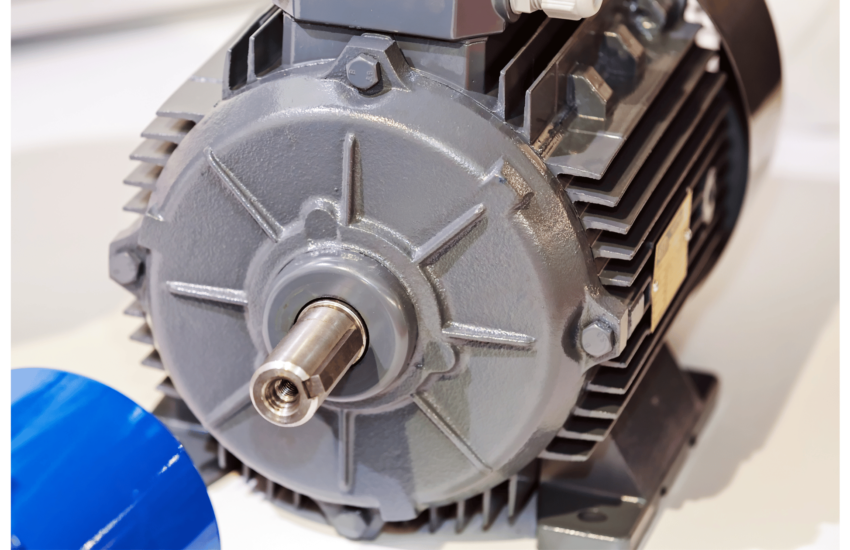Introduction
In the dynamic landscape of energy and transportation, electric motors, supplied by forward-thinking electric motors suppliers, have emerged as a pivotal player, promising a cleaner and greener future. As India, with its burgeoning population and rapid industrialization, navigates the challenges of environmental sustainability, understanding the environmental impact of electric motors becomes imperative. In this article, we delve into the ecological footprint of electric motors, exploring the production processes, usage, and disposal phases. Are electric motors truly the environmental saviors they are hailed to be, or do they come with their own set of environmental challenges? Let’s unravel the layers.
The Production Phase: Crafting a Green Revolution
Environmental Impact During Production
Electric motors, often touted as eco-friendly alternatives, do have an environmental footprint, primarily stemming from their production processes. The production of electric motors involves resource extraction, energy-intensive manufacturing, and waste generation. However, when compared to the production of traditional fuel-burning motors, the environmental impact is notably lower.
Key Points:
Reduced Carbon Footprint: Electric motors generally have a lower carbon footprint compared to their internal combustion counterparts.
Resource Extraction Challenges: The extraction of materials like rare earth metals for electric motor production poses environmental challenges, requiring sustainable practices.
The Usage Phase: Driving Towards Sustainability
Fuel Efficiency and Emissions Reduction
Electric motors shine in the usage phase, offering significant advantages over traditional engines. The shift to electric vehicles (EVs) powered by these motors contributes to reduced air pollution and greenhouse gas emissions. In India, where air quality is a growing concern in urban areas, embracing electric motors can lead to a cleaner atmosphere.
Key Points:
Air Quality Improvement: Electric vehicles contribute to improved air quality in densely populated urban areas.
Reduced Dependence on Fossil Fuels: Electric motors aid in decreasing India’s dependence on fossil fuels, fostering energy independence.
The Disposal Phase: Navigating the E-Waste Challenge
E-Waste and Recycling Considerations
As the adoption of electric vehicles and appliances with electric motors increases, so does the concern about electronic waste (e-waste). Proper disposal and recycling mechanisms are crucial to mitigate the environmental impact associated with the end-of-life phase of electric motors.
Key Points:
E-Waste Management: India needs robust e-waste management infrastructure to handle the growing number of discarded electric motors.
Recycling Opportunities: Exploring efficient recycling methods can minimize the environmental impact of disposing of electric motors.
A Holistic View: Balancing the Scales
While the environmental impact of electric motors is a topic of discussion, it is crucial to weigh the benefits against the challenges. Electric motors hold the potential to transform the automotive and industrial sectors in India, fostering a sustainable and greener future. However, addressing environmental concerns requires a comprehensive approach, from sustainable production practices to responsible disposal.
The Road Ahead: Sustainable Solutions for India
Key Considerations:
Government Initiatives: India can benefit from government initiatives promoting the adoption of electric vehicles and sustainable manufacturing practices.
Investment in Research: Continued investment in research and development is essential to finding greener alternatives and improving the overall lifecycle of electric motors.
Addressing Concerns: Navigating Environmental Challenges
Resource Efficiency and Sustainable Practices
In the quest for a sustainable future, the production phase of electric motors presents both challenges and opportunities. While the extraction of rare earth metals raises environmental concerns, innovative solutions are emerging to enhance resource efficiency. Companies are exploring alternatives, sustainable mining practices, and recycling methods to minimize the impact of material extraction1.
Additional Insights:
Circular Economy Approach: Adopting a circular economy approach can help extend the lifespan of electric motors and reduce the need for continuous material extraction.
Corporate Responsibility: Electric motor suppliers can play a pivotal role by incorporating environmentally responsible practices into their production processes.
Conclusion
As electric motors continue to gain prominence in India’s quest for a sustainable future, understanding their environmental impact becomes a crucial aspect of decision-making. The production, usage, and disposal phases each present unique challenges, but with proactive measures and innovative solutions, India can navigate this green revolution successfully. Electric motors suppliers, integral players in this transformative journey, must prioritize eco-friendly practices to ensure a harmonious coexistence of technological advancement and environmental sustainability.
In conclusion, while the journey towards a greener tomorrow may have its bumps, electric motors undeniably play a pivotal role in steering India towards a more sustainable and environmentally conscious future.

